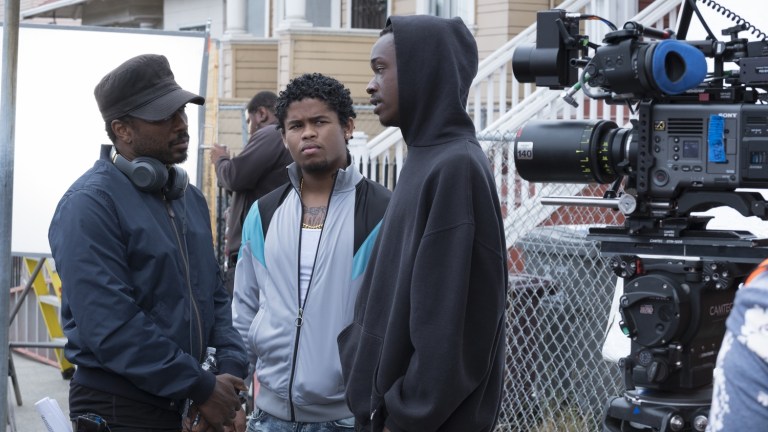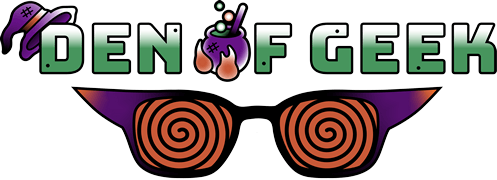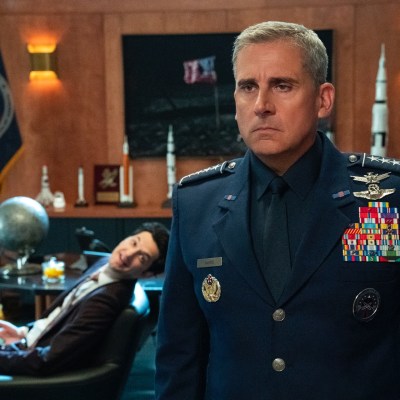Bringing Netflix’s All Day and a Night to Life
Black Panther writer Joe Robert Cole returns with the new Netflix drama All Day and a Night.

The new Netflix drama All Day and a Night follows the journey of Jahkor Lincoln (Ashton Sanders, Moonlight), a young man who dreams of a career in rap yet is drawn into a life of crime and gang culture in the underprivileged Oakland community in which he lives. Jahkor’s trajectory ultimately lands him in prison — right next to his father J.D. (Jeffrey Wright, Westworld), whose path Jahkor never wanted to follow but whose tutelage proved both wise and dangerous. Can Jahkor learn to break the cycle for his newborn son?
All Day and a Night is written and directed by Joe Robert Cole, who co-wrote Black Panther with Ryan Coogler and produced American Crime Story: The People Vs. OJ Simpson for FX. Cole began his career in 2011 with Amber Lake, an experimental film he directed and wrote, before entering Marvel’s famed writers’ program, in which the studio guided and developed talented scribes like Cole and Nicole Perlman (Guardians of the Galaxy), who went on to write produced scripts for Marvel and others.
Cole’s experimental tendencies may still linger in his new film’s non-linear storytelling, but his later work with big story beats and his clear affinity for Oakland — where he spent much of his time while attending college in the Bay Area — come through in the movie as well. We discussed all this — and yes, asked him about Black Panther 2 — when we got on the phone during a pandemic-mandated virtual press day for All Day and a Night.
Den Of Geek: You started out as a writer. This is your second film as director. Was the goal always that you want to eventually get into directing, or was it this particular project that you wanted to be steering the ship from start to finish?
Joe Robert Cole: I see myself as a storyteller, in whatever capacity that manifests itself. So in that sense, I think I’ve always wanted to direct. The film that I was a part of creating previously that you mentioned was an experimental film that was with four of us creators who voted on the genre, the characters, the roles, everything. We came up with a scene list, and I had them improv scenes, and then I wrote the script based on their own dialogue. So it was a very different process, and then we had no money to shoot it. So this was very different, so I see why folks might say this is my directorial debut, but I was a part of creating a film that I’m proud of. We all wanted to do something together, and we did it.
What was the learning curve like for you in terms of what you already knew about directing from that and from being around other directors, and what you did or didn’t know what you got behind the wheel for this one?
That’s a good question. I had supervised episodes on The People v. O.J. Simpson. I had obviously been on the set of Black Panther. I felt comfortable doing the job, and I always felt I could be a good filmmaker. I try to be a great filmmaker if I can, but I think the biggest challenge…I’ll name two. The eye-opening thing for me was that directing is all-encompassing. When I’m writing, I can oftentimes write more than one project at a time. so I went into production feeling like, “Oh, maybe I’ll be able to work on X, Y and Z.”
But what you find very quickly is that all you can do or want to do is work on the film you’re directing. So it was very eye-opening for me, because I like multitasking. And the second thing is, I think the most challenging aspect for me was post-production and cutting, and that was by virtue of our non-linear story. But also, as someone who has written so many scripts, rewriting in a different capacity in the editing room was probably my biggest learning curve on the film. But I had a fantastic editor, Mako Kamitsuna, and she was a great collaborator, and we found our way to the movie that we have.
Was it always the idea to tell this story in a non-linear fashion, or did that sort of come about as the writing on it progressed?
It absolutely was. In fact, the script largely goes backwards in time. One of my influences was Memento, because of how it tells a crime story going backwards. We got through production, we had what we felt like was really great material. But what we found is, as we put the movie in assembly, we put the assembly together based on the script. That might have worked on the page, because the words add the context needed to stay rooted emotionally in the moment. We had great scenes that seemed powerful intellectually, but when you’re watching them, you’re not finding out why they’re important until after you’ve seen them.
So there was something missing, and we had to then go on a bit of an odyssey of trial and error to find a way to tell the same story that the script tells, take the audience on that same journey, while allowing them to stay emotionally rooted to the moments of the film.
You set the story in Oakland, where you spent some formative years yourself. What did you want to capture about that city in terms of the history and both the good and tough sides of it?
I wanted to set the film in a place that could at the same time feel really specific, but speak to communities dealing with similar issues around the world. Oakland has a particular dialect, a particular way people carry themselves. There’s words and phrases there that could easily mean something completely different than anywhere else in terms of the language that they use. It’s a hard place to fake. And having spent time there and being familiar with it, I knew that was a city that would be a great setting for the film.
It obviously had a great history, just in terms of African-Americans, and it also has a great deal of — especially in the last 20, 30, 40 years — it’s had its share of struggles with severely underserved communities, like the one in my film. So I though that it would be an amazing setting, because of the uniqueness, because of the history of the city, the bold history of the city, and also, because underneath that, there are these underlying struggles that have consistently existed there, like many, many other cities in our country and around the world.
One of the things that I think is most striking is the idea of the father and son being in jail in prison together at the same time. Was that always the core of the film?
Yeah. It was always a core of the movie. This idea of a cycle, a generational cycle, was something that I definitely wanted to explore. Jah’s journey in a lot of ways is trying to find his way to a sense of hope for his own son through a greater understanding of his own life and his father’s life.
So the film, I think, speaks to the generational failures of our society when it comes to underserved communities of color like this, and in a way, how those failures have created climates of bleakness, depression, and poverty, where a young boy no different than those born into more affluent areas can end up where Jah is. So that was something I definitely wanted to explore by taking the audience through this journey from his point of view.
Did you envision Jeffrey Wright as the father from the start, and what did he bring that surprised you on the set?
The character of J.D. occupies a dark space in the story, so it would be easy to kind of ignore his vulnerability and humanity. Jeffrey brings a sense of humanity to every character he does, and he has this great ability to vanish into roles. What he brought to this film was this great balance of intelligence, danger, and world weariness, but he also fully embodied the mannerisms, demeanor, and dialect of a man like this in Oakland, really disappearing into the role.
It is a specific kind of character, a specific kind of guy, and he completely captured that guy. While we were doing a couple test screenings, friends and family screenings, I had a few people from Oakland there, and they, to a person, remarked how they know a guy like that. He embodied that character in a way that was extremely authentic.
Read more
Are you involved in Black Panther 2? Are you working on that, or is that to be determined?
(Laughs) I have nothing to report on Black Panther 2.
Whether you’re working on it or not, do you have your own idea of where you’d like to see that character and that franchise go?
I guess we all have different ideas of what would be great, but Marvel puts a chip in your head, and if you say anything remotely close to anything, you get electrocuted. So I’m going to sit back and defer on that one.
Understood. I’m familiar with that chip. You went through the Marvel writers program. How did that help you as a writer? What do you think you got out of that experience?
It was an amazing experience. I feel like it was a pivotal time for me and pivotal to my career, not because I got in a program and I booked a bunch of jobs from the program, but it allowed me to, as a writer, make a living, working on these amazing properties and working with really smart and really engaged executives, so that I could hone my skills and grow in the craft. We would be working with the same executive who would work on each of the films. So it wasn’t as if it was a separate thing.
You really get a great sense of what it takes to deliver a script that is shootable, and you learn about how to embed character moments in the action and wish fulfillment. You just really kind of learn how tentpoles work, and if you take a step back, you can see why Marvel’s films are often so successful because of how they approach story.
You wrote an Inhumans script in there, right?
Dude, that was this weird rumor. I never wrote an Inhumans script, I swear. I’ve had four interviews where I had to say, “I promise you, I never wrote an Inhumans script.”
My apologies! I didn’t see those interviews.
It’s just funny because, no, I never did that. I wrote a few scripts in the program, but I can’t actually say what they were. But it was not an Inhumans script. I think it’s funny though. I don’t know where it came from, but I did not.
All Day and a Night premieres on Netflix on Friday (May 1).


